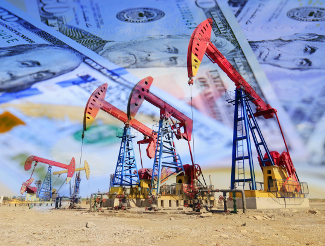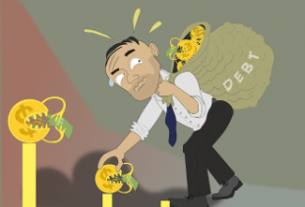Unless you’ve been living under a rock for the past three weeks, you’ve undoubtedly heard of the furor surrounding Saudi Arabia’s alleged torture and murder of dissident journalist Jamal Khashoggi at the Saudi consulate in Istanbul. The reaction from the West has been strong and steady, with numerous luminaries pulling out of a major investment conference that had been scheduled in Saudi Arabia. But while there have been threats of “punishment” in the event that Saudi Arabia is found definitively to have murdered Khashoggi, there is a reason that the US has been taking a slow and measured approach to the situation.
Ever since 9/11, in which terrorists from Saudi Arabia hijacked four airliners and flew them into the World Trade Center and the Pentagon, many Americans have questioned why the US continues to maintain such a friendly relationship with Saudi Arabia. There’s a reason for that friendly relationship, and it isn’t just oil. It’s the petrodollar.
With the collapse of the Bretton Woods system in 1971, the petrodollar system began to replace the gold-backed dollar. Saudi Arabia has been one of the world’s largest oil producers for decades, and its importance to world oil markets cannot be understated. Saudi Arabia and the Gulf states agreed to price their oil in dollars and accept only dollars for their oil. That helped prop up the dollar’s role as the world’s international reserve currency, since oil is such a vital resource to every country in the world.
In addition to maintaining the dollar’s status, the Saudis agreed to purchase US government bonds, helping the US government to continue funding its reckless and unbalanced spending. In exchange, the US would sell weaponry to the Saudi government and guarantee to protect the security of the Saudi regime. It’s a quid pro quo that has benefited both sides for decades, and explains why the US has never criticized the Saudi government.
With the prospect of sanctions against Saudi Arabia, however, this decades-old arrangement is showing signs of fraying. And if it does end up causing a rift, it could signal the beginning of the end for the dollar’s status as the world’s reserve currency. If the Saudis decide to retaliate and weaponize their oil sales by ditching the dollar it would roil not just world oil markets but stock, bond, and currency markets as well.
For investors who are used to the dollar’s dominance, the shock to the dollar’s reserve currency status will be catastrophic. Dollar-denominated assets will drop in value and bond yields on dollar-denominated bonds and especially US government bonds will skyrocket. That’s why investors need to take the necessary steps right now to protect themselves against this coming shock. By diversifying their assets through investing in gold and other assets that aren’t dependent on the dollar’s strength for their value, investors can go a long way towards safeguarding their wealth in the face of increasing turbulence in world financial markets.
This article was originally posted on Goldco.




